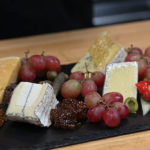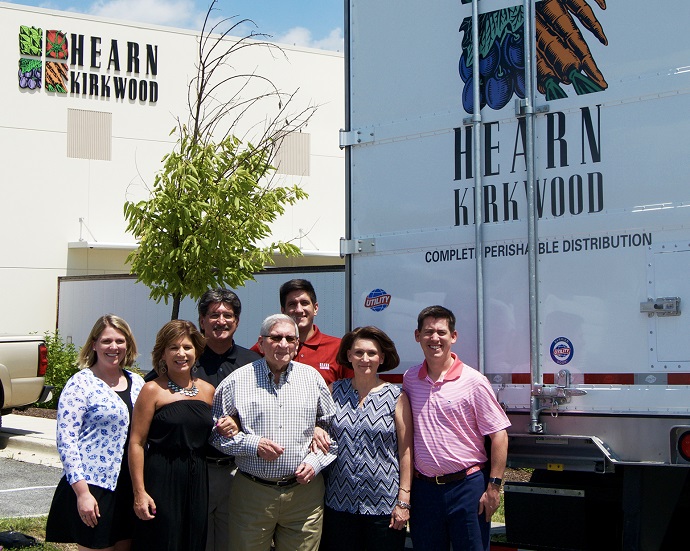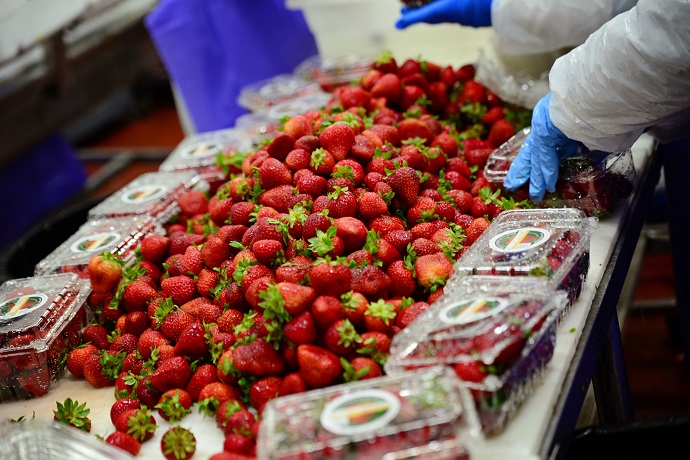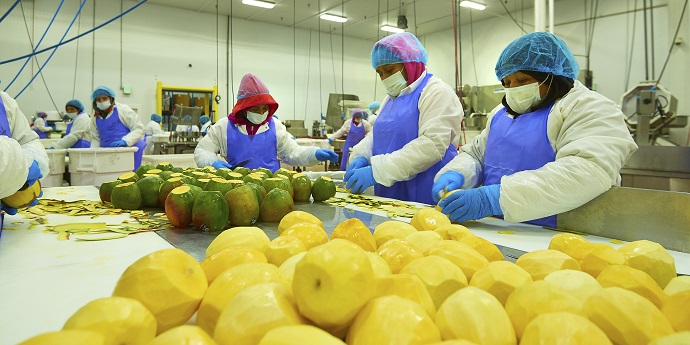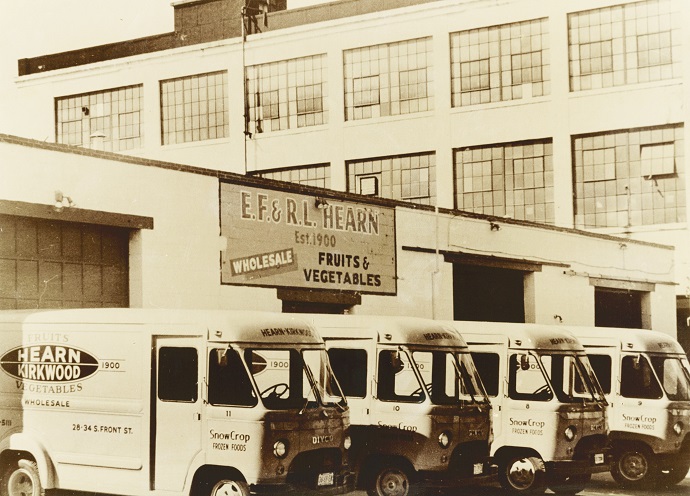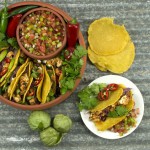Hearn Kirkwood, a family-run fresh foods distributor in Hanover, MD, has built its reputation of quality food and service over the past 71 years. We had the chance to chat with third-generation CEO Charles Gilbert, who happily noted, “There’s nothing like having a fresh produce company and loving to cook.”
What do you do as a supplier?
We strive to be good partners with our customers when it comes to their customers and their profitability. We do this by sourcing the best-quality products available at competitive pricing. Hearn Kirkwood handles everything fresh—produce, meat, seafood, poultry, and dairy. We’re all about the cold chain—making sure product is cooled as soon as possible after harvest or production, and maintaining that temperature until it reaches the customer. The only exceptions are some herbs, bananas, tomatoes, and other items that don’t care for the cold but still require the proper storage and handling.
We sell items both in bulk and further processed—from whole fish or individual portions to whole or cut fruit. We also have a USDA inspector on premise [in our processing facility] to safeguard the customer.
What’s your role in our food system?
Our role is to seek out the best suppliers to ensure the finest quality is available at all times. We have to have competitive prices and keep SAGE abreast on what items are in season and when to start and stop buying. With all that’s required for SAGE to manage school food operations, you don’t need to manage the purchasing and transportation of fresh produce from your growers and shippers.
Where do you source your food?
Wherever it’s in season—California, Arizona, Texas, Florida, you name it. Local sourcing is very important to us—just in this room, we’ve got nectarines from Pennsylvania, 15 different types of mushrooms from Delaware and Pennsylvania, and cauliflower from Arnold Farms in Maryland.
How do you vet farmers and suppliers for food safety and good business practices?
We have 30 or 40 suppliers through Pro*Act, a national network we helped form in 1991 that requires strong food safety standards. Our 11 or so local farmers are well-vetted for Good Manufacturing Practices (GMPs) and sanitation before we begin purchasing. And wherever we purchase—Texas, Florida, Peru, wherever [the produce is] in season—we have people on the ground to ensure food safety and GMPs.
Some customers come to us and say, “Your competitors buy from 50 local people. [Why do] you only buy from 11?” Well, I’ve visited those 11 and [had them] fill out a detailed form from our food safety director. They’re Maryland-certified, and they have good general manufacturing practices. We only use more seasoned local people to ensure that.
How do you stay sustainable?
We try our best not to store product too long—so besides long-storage items like apples, potatoes, and onions, we get everything else in and out within two and a half days. We’re a certified green building; we do a lot of recycling and stay away from Styrofoam®. We also work with several charities and food banks to make good use of food we can’t sell that’s still good for consumption.
What does it mean to be a family business after all these years?
I came into this business on a part-time basis at 13 years old. I’ve been doing it full-time now for 44 years, and I’m involved as I ever was. Over the years, I’ve been able to work with my grandfather, father, brother, and sister. Now, along with my sister, I have my oldest son, two nieces, and a nephew here. My father’s 91, and although he hasn’t been active in the business for years, he still manages to come in most days, sit down at the conference table, have lunch, and throw in his two cents when he feels it necessary. It’s been a blessing.

